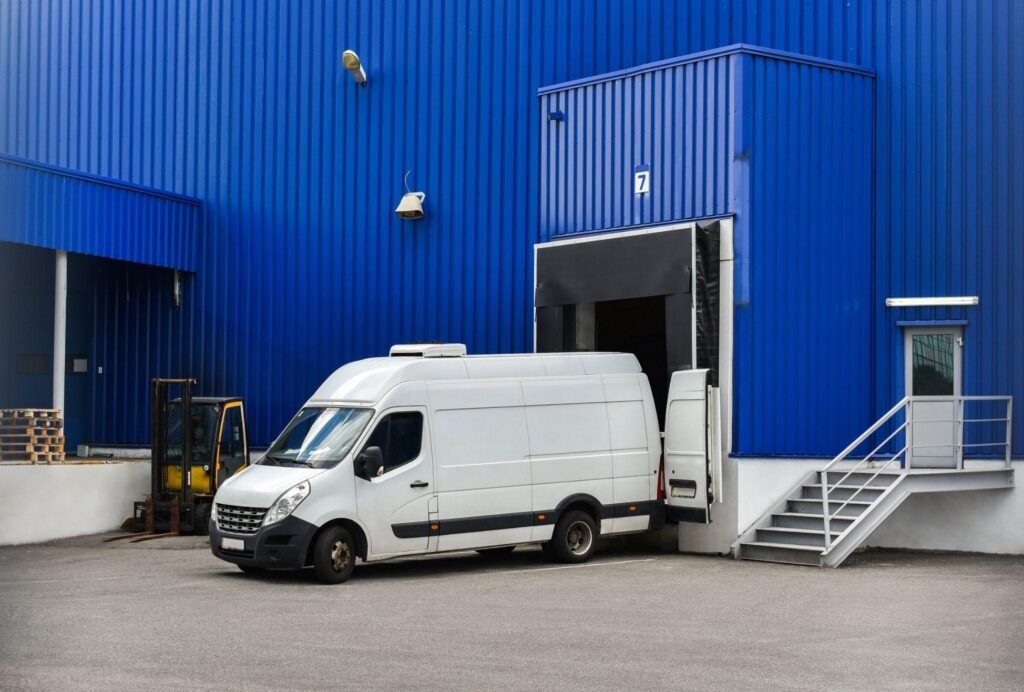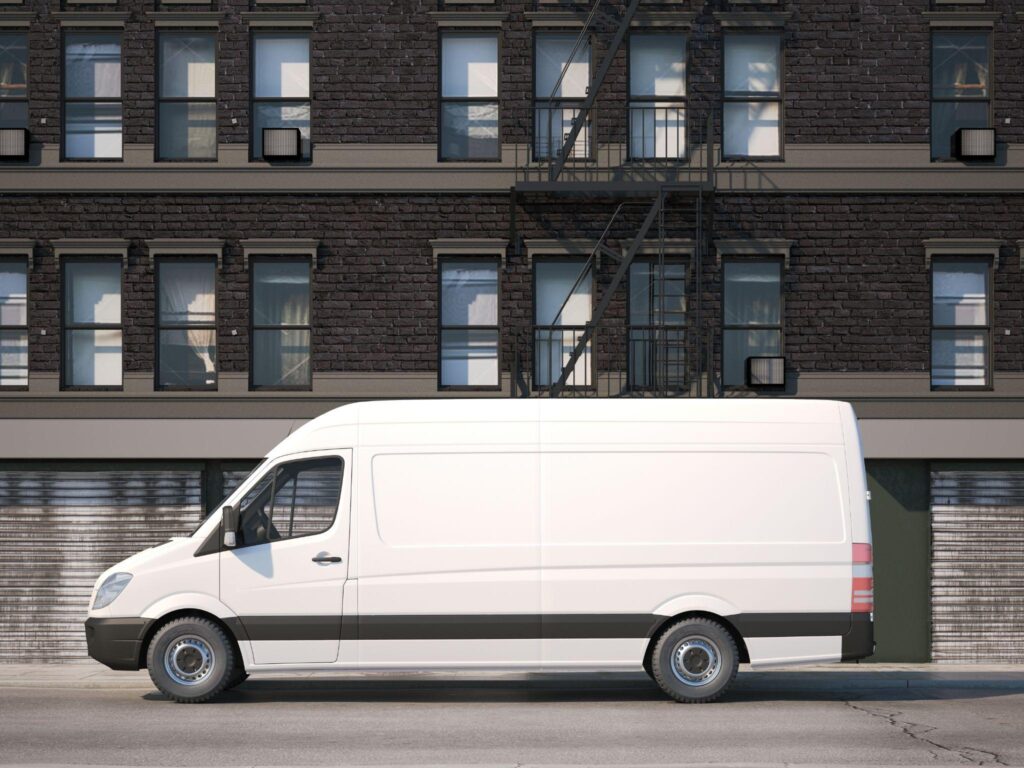When lives are on the line, ‘close enough’ won’t cut it.
Misrouted medications, delayed lab results, or lost medical supplies directly threaten patient care and regulatory compliance.
Medication-related harm affects 1 out of every 30 patients in health care, according to the World Health Organization. Modern medical delivery demands real-time visibility, chain-of-custody documentation, and reliable updates that hospitals, clinics, and patients now expect as standard.
Last-mile tracking technologies now serve as the backbone for healthcare delivery systems, where precision becomes mandatory for maintaining the trust that saves lives.
Key Takeaways
- Audit healthcare delivery workflows for gaps in visibility and compliance.
- Measure and monitor important KPIs such as on-time rates and proof-of-delivery.
- Roll out medical delivery software in phases, using real feedback.
- Educate employees about new forms of digital tools and healthcare procedures.
- Unify data from pharmacy, EHR, and logistics systems.
Unique Challenges of Medical and Healthcare Delivery

Medical delivery is not ordinary logistics.
The stakes are higher, the margin for error smaller. Every shipment may involve sensitive data, strict regulations, or life-saving materials. Delays, missteps, or temperature lapses can carry serious consequences.
What follows outlines the critical challenges that set healthcare delivery apart and why precision matters at every step.
Sensitivity and Compliance Requirements
Temperature-sensitive medications can lose their effectiveness if exposed to heat or freezing conditions. Some shipments, such as organs for transplant, require precise environmental controls to remain viable.
One lapse in temperature, and the risk rises dramatically.
Healthcare delivery must meet strict compliance standards. HIPAA, FDA, and GDPR regulations apply at every step. Each transfer in the medical delivery chain demands clear documentation, ensuring both patient safety and regulatory adherence.
Time-Critical and High-Value Shipments
Emergency healthcare delivery carries real consequences. Blood products, transplant organs, and critical pharmaceuticals all depend on speed. In these situations, every minute counts.
More than 100,000 people in the U.S. are on organ transplant waiting lists, as UNOS reports. For them, delays can mean lost lives. High-value shipments in medical delivery also mean big costs and risks if anything goes wrong.
Complex Stakeholder Network
The medical delivery chain is built on many touchpoints. Before the shipment reaches the patient, there are suppliers, couriers, and healthcare providers who are all linked.
The constraints of each group are different, and they are characterized by different service levels, facility rules, or geographic barriers. Rural healthcare delivery, especially, can be challenging due to limited access and extended routes.
Leverage our route optimization solutions to plan around service gaps, avoid delays, and ensure on‑time arrivals, no matter where “last mile” ends
The Cost of Inefficiency or Failure in Healthcare Delivery
Inefficiency or failure in healthcare delivery brings serious consequences, not just operational setbacks.
Patient safety is at risk. Delayed insulin shipments put diabetics in danger. Misrouted blood samples slow down critical diagnoses. Temperature issues can ruin vaccines, leaving vulnerable groups unprotected.
Compliance missteps invite regulatory penalties. According to a 2024 Premier report, hundreds of product shortages still impact care quality across the industry.
Reputational harm spreads quickly. In this industry, one failed delivery can prompt providers to move on, and healthcare networks don’t forget
Immediate exception scenarios include:
- Lost shipments that need emergency replacement.
- Temperature fluctuations that compromise medication integrity.
- Misrouted packages that hold up urgent treatments.
- Incomplete chain-of-custody logs triggering compliance investigations
Key Features and Best Practices for Last-Mile Tracking in Medical Delivery

The last stretch of a medical delivery, from vehicle to doorstep or department, carries the highest risk of delay, miscommunication, or error.
A time-sensitive medication or a temperature-controlled shipment must reach the right hands at the right moment, and real-time visibility makes that possible.
Real-Time GPS and Location Visibility
Real-time GPS tracking gives full visibility throughout the medical delivery chain.
Dispatchers track shipments one mile at a time, and the healthcare teams are notified when deliveries are on their way. Accurate location data is important, especially for large hospitals and multi-building campuses.
This ensures that deliveries are made to the correct department at the correct time, hence avoiding confusion and delays.
Chain-of-Custody and Proof-of-Delivery
Every transfer point in medical delivery gets a digital signature, locking in proof of handoff.
The visual confirmation is provided with photo capture. Every move is recorded by timestamps and helps to audit regulators.
The information loop is closed by connected systems that inject delivery data directly into electronic health records, giving healthcare providers the information they need.
Contactless and Secure Delivery Protocols
In home healthcare, safety and trust go hand in hand. Lock-boxes make unattended deliveries secure, and ID checks help ensure sensitive items reach the right hands.
Contactless delivery has become the norm in home healthcare to protect all involved parties and maintain security practices.
Regulatory Compliance and Data Security in Medical Delivery
Each shipment carries sensitive data, strict regulatory requirements, and patient trust. From scheduling to final handoff, systems must meet the highest standards of privacy, traceability, and control.
Data Security
Patient information is private, and it stays that way. From the moment a delivery is scheduled to the moment it arrives, data is protected with end-to-end encryption.
- SOC 2 Type 2 compliance requires access controls to be strict.
- Data handling is done in accordance with established procedures, and any system integration should avoid transferring medication names or PHI unless the connected platform is HIPAA compliant.
- Audit trails keep records of all actions of users and handlers, which facilitates regulatory transparency.
Documentation and Audit Readiness
Automated documentation keeps your healthcare delivery operation audit-ready.
- All deliveries and events are logged and automatically saved on your record.
- With a couple of clicks, you can access compliance reports and investigation data.
- The API is seamlessly integrated with your workflows, internal hospital, pharmacy, and inventory systems.
You fulfill regulatory and legal requirements without additional manual input.
Technology Landscape: Examples in Healthcare Last-Mile Tracking

Technology plays a critical role in the speed, accuracy, and reliability of last-mile medical delivery.
Intelligent routing, mobile access, and real-time visibility are built to meet the demands of healthcare logistics. These tools help ensure that time-sensitive shipments arrive safely, even in complex or unpredictable conditions.
Route Optimization for Medical Deliveries
In the case of time-sensitive and temperature-controlled deliveries, your routing algorithms adapt on the fly. Emergencies become a priority. Rerouting is also automatic and will prevent delays so that patients are attended to promptly.
Mobile Tools for Drivers and Field Staff
Mobile apps provide real-time updates and clear instructions on delivery to the drivers. Proof-of-delivery is recorded safely, and incident reporting gives instant notifications. Even in rural locations, your team will remain connected via offline access.
Analytics and Continuous Improvement
Your real-time dashboards provide fleet performance and delivery status in real time.
Monitor KPIs such as on-time rate, incidence frequency, delays, and compliance exceptions, right from your screen.
Failure trends are also pointed out in historical analysis, allowing you to optimize routing and scheduling beforehand.
Delivery software can enhance your business efficiency, giving you access to crucial information that allows you to avoid delays or going against ever-evolving compliance requirements.
Business Impact: Quantifying Value for Healthcare Providers and Logistics Firms
When delays are avoided, documentation is airtight, and operations run efficiently, the financial impact is significant.
For healthcare providers and logistics firms alike, the return on investment is measurable in time saved, risks reduced, and resources used more wisely.
Direct Value
Last-mile tracking eliminates lost and delayed healthcare deliveries due to better visibility and proactive measures. According to NumberAnalytics, the U.S. healthcare system loses approximately $ 25.7 billion a year due to inefficiencies within its supply chain.
Comprehensive documentation and audit trails minimize compliance breaches. While automated reporting saves regulatory procedures and reduces manual work.
Reduced manual operation and route optimization provide measurable cost savings on operations.
Indirect Value
Reliable healthcare delivery builds trust, and trust keeps clients coming back.
When patients receive their medications and treatments on time, satisfaction rises, and so does your reputation.
Third-party medical delivery partners can set themselves apart with dependable service and real-time tracking.
With strong systems in place, you’re poised to grow. Expanding into new regions becomes possible without sacrificing the quality your clients count on.
CIGO Tracker: Raising the Bar for Healthcare and Medical Delivery

CIGO Tracker brings clarity, speed, and control to every stage of medical delivery.
Built for the demands of healthcare, it gives teams the visibility and responsiveness they need to keep operations running smoothly and patients protected.
End-to-End Visibility and Incident Response
You can track all your deliveries in real time with CIGO Tracker. Operations, compliance, and support teams all have access to live data pulled into dashboards, and no one is left guessing.
Automatic alarms are triggered when risks occur, and corrective action is initiated immediately by the system.
Predictive analysis goes into trends and alerts you in advance before a delay interferes with patient care. You have time to adjust and interact.
Compliance and Chain-of-Custody
Temperature logs, GPS data, and delivery confirmation come standard, providing a reliable audit trail and peace of mind during audits or inspections.
Having an established chain-of-custody ensures you’re protecting your team’s backs and your own, and that it is clear which stage of the delivery process that a problem occurred. GPS data and temperature logs also help you spot issues before they show up, ensuring medication isn’t unsuitable when it arrives and avoiding re-deliveries.
Seamless Integration and Customization
Systems work better when they work together. CIGO Tracker’s API integrations allow you to connect your EHRs, inventory, and logistics platforms, straight out-of-the-box.
Mobile tools are purpose-built for healthcare, with PPE protocols and secure handoffs built in.
And when every facility runs a little differently, customizable workflows help you adapt without slowing down.
Is Your Healthcare Logistics System Ready for Tomorrow’s Demands?

The days of “good enough” delivery are over. Patients, providers, and regulators expect visibility and accountability at every stage.
Advanced tracking technologies lower risk and boost outcomes, all while supporting operational growth. Transitioning from “if” to “when” is now the conversation.
Curious about what next-level healthcare delivery looks like?
Contact us today and experience firsthand how our solutions set a new standard for patient care and operational excellence.
Frequently Asked Questions
1. Can this tracking technology integrate with our medical inventory/EHR systems?
Yes. The standardized APIs interface with the major healthcare platforms. Epic, Cerner, and leading pharmacy management systems have been proven to integrate, guaranteeing compatibility in your technology stack.
2. Is data secure and compliant with healthcare regulations like HIPAA and GDPR?
Absolutely. The system has end-to-end encryption, role-based access, and complete audit logs. Any processing of data is HIPAA and GDPR compliant, and compliance is regularly checked and certified.
3. How does the system work for after-hours or home healthcare deliveries?
Tracking is done in real time, 24/7. Each delivery is secured by contactless procedures and driver verification. Automated messages inform the healthcare personnel of after-hours deliveries without compromising security.
4. What’s the impact on delivery drivers and staff?
Implementation is smooth by design. Apps are built for healthcare, making them easy to learn and quick to adopt. With continuous support and simplified workflows, teams spend less time on paperwork and more time delivering care.




